
Conference 2018
- Home
- Conference 2018
Community Policing Conference
Fostering dialogue on community policing
From the L.A. County Newsroom.
The first ever conference on Community Policing in Los Angeles County (October 15, 2018). A unique conference brought together leading law enforcement officials from the region, activists, community members and local leaders to discuss the challenges, trends and future of community policing in the County.
A Vision for the Future
We are all in this together, so let’s talk! A day of dialogue will bring together the community, law enforcement, criminal justice professionals, academics and the media to discuss the future of policing in Los Angeles County.
Date: Monday, October 15, 2018
Registration and Breakfast: 7:30 a.m. - 8:00 a.m.
Program: 8:00 a.m. - 3:00 p.m.
Location: The Center at Cathedral Plaza,555 W. Temple Street, Los Angeles, CA 90012
Opening Remarks
- Brian K. Williams, Executive Director of the Civilian Oversight Commission
- Patti Giggans, Chair of the Civilian Oversight Commission
- Supervisor Mark Ridley-Thomas, Second District
Roundtable Discussion: Today’s challenges, trends and opportunities in law enforcement
Los Angeles County is a large, complex and diverse region that sometimes poses unique challenges and opportunities for law enforcement. This opening session will bring together leading law enforcement officials from our region for a moderated discussion on the challenges, trends and future of community policing in Los Angeles County. As Los Angeles goes, so does the rest of California.
Moderator: Paul Vercammen, CNN Reporter and Producer
Panel Participants:
- Peter Bibring, American Civil Liberties Union (ACLU)
- Scott Gordon, Supervising Judge Los Angeles County Superior Court Criminal Div.
- Jackie Lacey, Los Angeles County District Attorney
- Jim McDonnell, Los Angeles County Sheriff
- Michel Moore, Los Angeles Police Chief
- Hilary Potashner, Federal Public Defender Central District
Session 1: When should the use of technology by law enforcement meet a stop sign?
Law enforcement agencies across the country are making greater use of technology to police communities. From the use of surveillance and tracking technology to facial recognition software and unmanned aerial systems, the use of these technologies poses profound privacy concerns. This panel will explore the efficacy of using these platforms and the public safety and privacy implications they raise.
Moderator: Lael Rubin, Civilian Oversight Commissioner
Panel Participants:
- Jennifer Stisa Granick, ACLU
- Eric J. Miller, Loyola Law School
- Samuel Peterson, RAND Corp.
- Rick Smith, CEO Axon
Session 2: Why are they always calling the cops on me?
Turn on the news or view social media on any given day and there is a story about someone calling 911 on a group or a person for seemingly innocuous behavior: selling lemonade, barbecuing in a park or allowing your child to walk her dog. These are all examples of where police have been called to curtail such behavior. What is behind this trend? What should be the response of law enforcement? This session will explore these phenomena and seek answers as to why this is happening and what can be done to address these situations.
Moderator: Priscilla Ocen, Civilian Oversight Commission Vice Chair
Panel Participants:
- Isaac Bryan, UCLA/Million Dollar Hoods
- Marsha Myers, City of Los Angeles 911 Operator
- Addie Rolnick, Associate Professor of Law at UNLV
Media Panel Discussion: Does my camera report the truth, the whole truth, and nothing but the truth?
The media has tremendous power to shape the public’s perception of people and events. What precautions do members of the media take to ensure that their reporting is fair and unbiased? What about the spokespersons for police agencies? Can there be more than one angle to the same story if different reporters are reporting? This panel will explore how and why the media decides to report on incidents and how this reporting is viewed by various sectors of our community.
Moderator: Al Naipo, Chief Administrative Officer at Los Angeles Memorial Coliseum Commission and former broadcast journalist
Panel Participants:
- Manny Medrano, Journalist
- Allissa Richardson, USC Assistant Professor of Journalism
- Laura Diaz, Fox11 Anchor/Reporter
- Carol Lin, Director of Strategic Communications for Los Angeles County Sheriff’s Department and former broadcast journalist
- Jasmyne Cannick, Social Critic and Political Commentator
Group Discussion: Where do we go from here: A group discussion on next steps
Policing is an important and complex aspect of life in our community. Hence, the entire community must be involved in this process and everyone’s voice must be heard. In this final session of the day, we will gather for a facilitated conversation to discuss what we learned and what the next steps should be.
Moderator: Robin Toma, Human Relations Commission Executive Director
Closing Remarks
- Dr. Barbara Ferrer, Director of Los Angeles County’s Department of Public Health
- Brian K. Williams, Executive Director of the Civilian Oversight Commission
This conference is hosted by the L.A. County Sheriff Civilian Oversight Commission, the Human Relations Commission and the Department of Public Health.
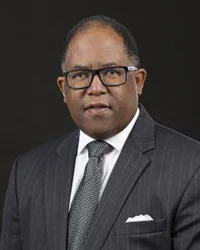
Mark Ridley-Thomas, L.A. County Board of Supervisor, Second District
Mark Ridley-Thomas is a board member of the Los Angeles County Metropolitan Transportation Authority, the Los Angeles Memorial Coliseum Commission and LA Care, the nation’s largest publicly operated health plan. His major accomplishments during his tenure as County Supervisor include initiating the establishment of civilian oversight of the Los Angeles County Sheriff’s Department and creating the Office of the Inspector General, Office of Child Protection, and Office of Diversion and Reentry. In 2015, Ridley-Thomas led the effort to adopt the Los Angeles County Economic and Community Development Program that set the foundation for the County’s 2017 Bioscience Cluster Development Initiative with its focus on strategies to support start-ups and commercialization.
Prior to his election to the Board of Supervisors, Ridley-Thomas served the 27th District in the California State Senate and the 48th District in the California State Assembly. While in the Senate, he chaired the Senate’s Committee on Business, Professions and Economic Development. While in the Assembly he chaired the Committee on Jobs, Economic Development and the Economy. Ridley-Thomas was first elected to public office in 1991 and served with distinction on the Los Angeles City Council for nearly a dozen years, departing as Council President pro Tempore. He is widely regarded as the foremost advocate of neighborhood participation in government decision-making by virtue of this founding of the Empowerment Congress, arguably the region’s most successful 26-year initiative in neighborhood-based civic engagement.
The Supervisor graduated from Manual Arts High School (Class of 1972) and then earned BA and MA degrees along with secondary and adult education credentials from Immaculate Heart College. Supervisor Ridley-Thomas went on to receive his Ph.D. in Social Ethics from the University of Southern California focusing on Social Criticism and Social Change.
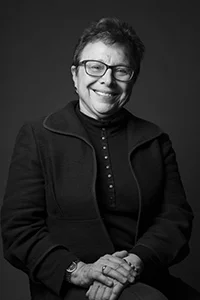
Patti Giggans
Giggans was appointed to the Commission in December 2016 and has served on the Family Assistance and Communication and the Mental Evaluation Team Program Ad Hoc Committees. She has been the Executive Director of Peace Over Violence since 1985. She achieved a bachelor’s degree in Psychology and a master’s degree in Non-profit Management. A black belt in Karate and master self-defense trainer, she founded Karate Women, the first martial arts school in Southern California in 1976. Giggans also founded Denim Day, an international sexual violence prevention education campaign.
Giggans has held numerous statewide and national leadership and advisory positions in the sexual assault and domestic violence arena, including the California Domestic Violence Advisory Council, 1in6, The Trauma Resource Institute, the Center for Council and The Joyful Heart Foundation. She is the former President of The California Coalition Against Sexual Assault and founding Board member of the California Partnership to End Domestic Violence.
Giggans has received the California Peace Prize, and she is a Durfee Foundation Stanton Fellow, among numerous additional awards. She has co-authored What Parents Need to Know About Teen Dating Violence, 50 Ways to A Safer World, and When Dating Becomes Dangerous: A Parent’s Guide to Preventing Relationship Abuse.
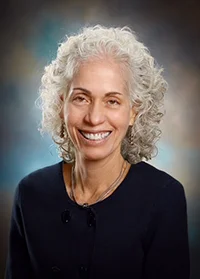
Barbara Ferrer, Director, Los Angeles County Department of Public Health
Dr. Barbara Ferrer is a nationally-known public health leader with over 30 years of professional experience as a philanthropic strategist, public health director, educational leader, researcher, and community advocate. Currently, Barbara Ferrer leads the Los Angeles County Department of Public Health. Public Health protects and promotes health and prevents disease among LA County’s more than 10 million residents across 4,000 square miles. She oversees a budget of $1 billion and directs a workforce of 4,100 public health practitioners. Under Dr. Ferrer’s leadership, Public Health works alongside the Departments of Health Services and Mental Health to comprise the LA County Health Agency. The Health Agency integrates services across the departments and builds health equity throughout the county.
Most recently, Dr. Ferrer served as the Chief Strategy Officer for the W.K. Kellogg Foundation, where she was responsible for developing the strategic direction for critical program-related work and providing leadership to the foundation’s key program areas, including food, health, and well-being. Prior to working at the W.K. Kellogg Foundation, Dr. Ferrer served as the Executive Director of the Boston Public Health Commission, where she led a range of public health programs and built innovative partnerships to address inequities in health outcomes and support healthy families and communities.
Dr. Ferrer has also served as Director of Health Promotion & Chronic Disease Prevention and Director of the Division of Maternal & Child Health at the Massachusetts Department of Public Health. As a headmaster at a district high school in Boston, she led efforts to significantly improve high school graduation rates and ensure that every graduating senior was accepted to college. Dr. Ferrer received her Ph.D. in Social Welfare from Brandeis University, a Master of Arts in Public Health from Boston University, a Master of Arts in Education from the University of Massachusetts, Boston, and a Bachelor of Arts in Community Studies from the University of California, Santa Cruz.
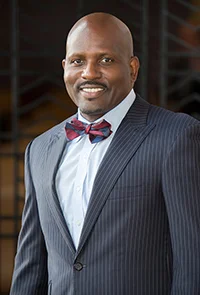
Brian K. Williams
Brian K. Williams Esq. is the principal owner of the Brian K. Williams Law Group (BKWLG), a criminal defense and civil litigation law firm. Williams has handled matters in both State and Federal court and has tried over 100 cases. Williams also served as President and CEO of Junior Achievement of Southern California, one of the nation’s preeminent educational programs for youth. Prior to joining Junior Achievement, Williams served as the Executive Director of the Southern California Leadership Network (SCLN). The SCLN is one of the nation’s premiere leadership development programs. Prior to joining the SCLN, Williams served as the Director of Government Affairs for the Southern California Association of Governments.
Williams served for 11 years as an Assistant City Attorney in the Los Angeles City Attorney’s Office where he handled thousands of criminal and civil matters and more than 100 cases. After several years in the Criminal Division handling general criminal matters and assisting in the establishment of the Domestic Violence Unit, Williams moved to the Special Operations Division where he conducted specialized prosecution of high-profile cases such as police officer involved crimes, hate crimes, child molestation, industrial accidents, manslaughter, and environmental crimes. Williams was also charged with serving as co-chair of the City Attorney’s team reviewing the LAPD Rampart Corruption probe. When Los Angeles City Attorney James K. Hahn was elected Mayor of Los Angeles, Mayor Hahn appointed Williams as his Deputy Mayor.
Williams served for four years as the Deputy Mayor of Los Angeles for Transportation, Environment, and Infrastructure. Upon leaving the Mayor’s Office, Williams was appointed as the Assistant City Manager for the City of Pasadena, where he oversaw the police, fire, planning, water and power, and human resources departments. Williams, a two-time UCLA Chancellor’s Marshall, earned a B.A. in Political Science at UCLA and received a Juris Doctorate from the UCLA School of Law. Williams has lectured at the UCLA School of Law, USC School of Law, Loyola University, and has provided commentary in national, regional and local media outlets. Williams is a member of Alpha Phi Alpha Fraternity, the Boule’, the Pacific Council and numerous other organizations. A native of Southern California, Williams is married and has two outstanding sons.
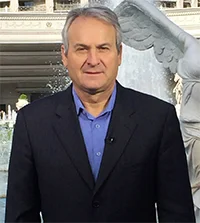
Today’s challenges, trends and opportunities in law enforcement
Paul Vercammen, CNN Reporter and Producer
Moderator
Paul Vercammen is a reporter/producer at CNN, a five-time Emmy-winner, former news director at KEYT (ABC) in Santa Barbara and former adjunct journalism professor at USC Annenberg.
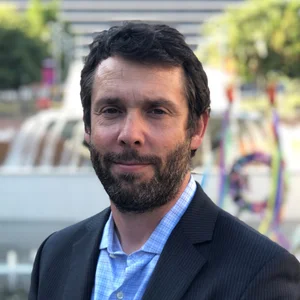
Peter Bibring, American Civil Liberties Union (ACLU)
Panel Participant
Peter Bibring is senior staff attorney at the ACLU of Southern California and director of police practices for the ACLU of California. He joined the ACLU SoCal as a staff attorney in 2006. Peter works on a wide range of police-related issues, including race and bias in policing, gang injunctions, excessive force, search and seizure, police interference with First Amendment rights, national security, civilian oversight, and surveillance. Peter’s cases include Vasquez v. Rackauckas, a successful due process challenge to enforcement of a gang injunction in the city of Orange, California; Fazaga v. FBI, a challenge to the FBI’s surveillance of mosques in Orange County; Nee v. County of Los Angeles, a suit on behalf of photographers unlawfully detained for photographing in public; Gordon v. City of Moreno Valley, a challenge to racially-targeted, warrantless raids on African American barbershops; and Fitzgerald v. City of Los Angeles, a lawsuit targeting unlawful searches and detentions in L.A.’s Skid Row area. Prior to joining the ACLU, Peter worked in private practice, specializing in civil rights and workers’ rights. Peter clerked on the United States Court of Appeals for the Second Circuit and the United States District Court for the Northern District of California. He graduated from New York University School of Law, where he was an editor-in-chief of the NYU Review of Law and Social Change, and from Harvard University.
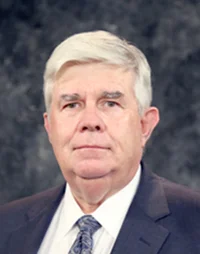
Hon. Scott Gordon, Supervising Judge Los Angeles County Superior Court Criminal Div.
Panel Participant
Current Term: Sept 15, 2018 - Sept 14, 2021
Membership: Voting member, reappointed by Chief Justice Tani G. Cantil-Sakauye
Internal Committees: Rules and Projects Committee
Council Liaison to: Fresno, Kings, and San Diego Counties
Judge Scott Gordon was appointed to the bench by Governor Arnold Schwarzenegger in 2010 after serving as a court commissioner since 2002. He is currently the Assistant Supervising Judge of the Criminal Division. He has also served as Supervising Judge in the Family Law Division. Before his commissioner service, Judge Gordon served with the Los Angeles County District Attorney’s Office for sixteen years and as a police officer and detective for the Santa Monica Police Department for eight years. Judge Gordon graduated from California State University Dominguez Hills in 1980 with a B.S. Degree in Public Administration. He is an adjunct professor at his alma mater; Southwestern Law School, which he attended while serving as a police officer.
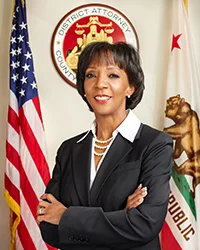
Jackie Lacey, Los Angeles County District Attorney
Panel Participant
District Attorney Jackie Lacey has spent most of her professional life as a prosecutor, manager and executive in the Los Angeles County District Attorney’s Office. On Dec. 3, 2012, she was sworn in as the 42nd District Attorney. She was re-elected four years later without opposition. She is the first woman and first African-American to serve as Los Angeles County District Attorney since the office was established in 1850.
District Attorney Lacey’s top priority is keeping the streets of Los Angeles County safe from violent and dangerous criminals. She is committed to safeguarding our children from human sex traffickers, our seniors from financial elder abuse and our communities from environmental crimes that threaten our health and our livelihood. District Attorney Lacey established the Conviction Review Unit to assess claims of actual innocence based on newly discovered evidence. She also appointed the office’s first Professional Responsibility Advisor. As chair of the Criminal Justice Mental Health Project for Los Angeles County, District Attorney Lacey leads a multidisciplinary working group devoted to diverting people who are mentally ill out of the criminal justice system for nonviolent offenses.
She initiated an ambitious plan within her office to provide free training to first responders on how to safely de-escalate incidents involving people in a mental health crisis. A Los Angeles native and graduate of the University of Southern California Law School, she leads the largest local prosecutorial office in the nation, with a workforce of approximately 1,000 lawyers, 300 investigators and 800 support staff employees.
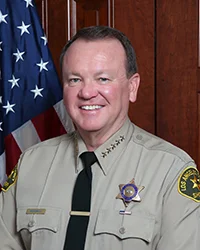
Jim McDonnell, Los Angeles County Sheriff
Panel Participant
Sheriff Jim McDonnell was sworn in as the 32nd Sheriff of Los Angeles County on December 1, 2014. Sheriff McDonnell is a Boston native who grew up in a working class neighborhood, a stone’s throw from Fenway Park. He came to Los Angeles almost four decades ago with little more than a dream to be part of protecting and serving the public. He was born to immigrant parents who instilled in him the values that have served as the guideposts throughout his life: hard work, integrity, and treating all people with respect. He began his law enforcement career in 1981 as a twenty-two-year-old graduate from the Los Angeles Police Academy. Sheriff McDonnell served for 29 years at the Los Angeles Police Department (LAPD), holding every rank from Police Officer to second-in-command. While at the LAPD, he earned that Department’s highest honor for bravery, the Medal of Valor, and helped create the blueprint for LAPD’s community-based policing efforts that have now become a model for law enforcement agencies throughout the nation.
For five years, Sheriff McDonnell served as the Chief of the Long Beach Police Department. In that role, he implemented numerous improvements that resulted in safer communities, increased morale, and enhanced community relations. Sheriff McDonnell draws from his experience at the Los Angeles Police Department and the Long Beach Police Department to lead the largest Sheriff’s Department in the world. The Los Angeles County Sheriff’s Department (LASD) provides police services for more than ten million residents throughout a geographic area of 4751 square miles. The Los Angeles Sheriff’s Department also maintains the largest jail system in the nation, housing more than 17,000 inmates daily. The Department’s Court Services Division monitors the largest court system in the nation, encompassing 37 Superior Courts. Through Sheriff McDonnell’s reformative direction, the Los Angeles Sheriff’s Department is now well on its way to accomplishing a number of long-term projects and goals, including the successful completion of consent decrees and settlement agreements with the Department of Justice. Ultimately his goal is to provide the safest possible environment for all residents and visitors to Los Angeles.
Sheriff McDonnell brings to the LASD decades of experience and strong relationships with law enforcement and government leaders. He is a proven and respected voice in local, state, and national criminal justice organizations, having served as President of the Los Angeles County Police Chiefs' Association, President of the California Peace Officers' Association, a member of the California Commission on Peace Officers' Standards & Training (POST), a board member of the Peace Officers' Association of Los Angeles County, and is on the Board of Directors for the International Association of Chiefs of Police. Sheriff McDonnell is also a believer in the importance of education, both in the classroom and on the job. He holds a Bachelor of Science degree in Criminal Justice from St. Anselm College in Manchester, New Hampshire and a Master’s Degree in Public Administration from the University of Southern California. He is also a graduate of the Federal Bureau of Investigation’s National Executive Institute and has completed executive education programs at Harvard’s Kennedy School of Government.
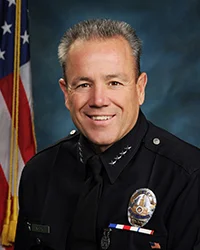
Michel Moore, Los Angeles Police Chief
Panel Participant
Chief Michel R. Moore is a 36-year veteran of the Los Angeles Police Department. He was born the second of five children in Porterville, California, and grew up in various parts of the United States, graduating high school in Conway, Arkansas. He returned to Southern California in 1978 and joined the Los Angeles Police Department in 1981.
Chief Moore rose through the ranks of police officer, detective, sergeant, and lieutenant working various patrol, investigative, and administrative assignments throughout the City. Chief Moore promoted to the rank of Captain in 1998 and his assignments included assuming command at Rampart Area following the arrest of Rafael Perez and during the 2000 Democratic National Convention. Upon his promotion to Commander in 2002, his assignments were at Operations-Valley Bureau and later the Assistant to the Director, Office of Operations. In 2004, he was promoted to Deputy Chief and assumed the command of Operations-West Bureau, later transferring to Operations-Valley Bureau in 2005. In 2010, he promoted to Assistant Chief and was assigned as Director, Office of Special Operations. In that position, Chief Moore oversaw Detective Bureau and Counter-Terrorism and Special Operations Bureau, as well as Citywide Jail, Property and Security Services Operations. In 2015, Chief Moore was assigned as Director, Office of Administrative Services. In that position, he oversaw the Department’s fiscal, personnel, training and various support operations including the Department’s command center, communications and records management. He was also the Chair of the Department’s Use of Force Review Board which evaluates all Categorical Uses of Force, including deadly force and hospitalizations. In 2016, he was promoted to First Assistant Chief and was assigned as Director, Office of Operations. In that position, he oversaw the Department’s geographic bureaus and patrol divisions which provide uniformed and investigative services within the City of Los Angeles. In addition, Chief Moore directed the Department’s COMPSTAT process, including weekly command inspections. On June 27, 2018, Michel R. Moore was sworn in by the Los Angeles Mayor Eric Garcetti as the 57th Chief of Police of the City of Los Angeles.
Chief Moore attended the University of Redlands, completing a Bachelor of Science in Business and Management in 1993 and a Masters of Business Administration in 1999. He is also a graduate of the Police Executive Research Forum, the Senior Management Institute for Police, the Supervisory Leadership Institute, and the West Point Leadership program. Chief Moore has completed advanced coursework in emergency management, counter-terrorism, and process improvement. He has received numerous commendations and awards for his police service including the Department’s Medal of Valor, the Police Medal, the Police Star, and the Meritorious Service Medal.
Chief Moore is a Director for the Los Angeles Police Federal Credit Union, Past President of the Los Angeles County Peace Officers Association, and serves on the Board of Directors for the Los Angeles Police Memorial Association. He is a member of various professional organizations including the Police Executive Research Forum, the Latin American Law Enforcement Association, the Los Angeles Women Peace Officers and Associates Organization, and the International Association of Chiefs of Police. Chief Moore strives to promote a community policing style of leadership that stresses intelligent, partnership-oriented strategies involving community stakeholders, as well as various members of the criminal justice system.
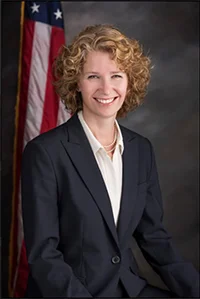
Hilary Potashner, Federal Public Defender Central District
Panel Participant
Hilary Potashner is the Federal Public Defender for the Central District of California. She leads an office of more than 200 employees with an annual budget of nearly $40 million. The Central District is comprised of approximately 19 million people and is divided into three divisions that encompass the counties of Los Angeles, Riverside, San Bernardino, Santa Barbara, San Luis Obispo, Ventura, and Orange. The FPD’s main office is located in Los Angeles, with branch offices in Santa Ana and Riverside.
Ms. Potashner was appointed to her post by the United States Court of Appeals for the Ninth Circuit on June 30, 2015. Her office represents approximately 4000 indigent people annually who are charged with federal criminal offenses in magistrate and district court, as well as individuals who are challenging their convictions and sentences on direct appeal. Additionally, the FPD's non-capital and capital habeas units represent prisoners who are challenging their state court convictions through the federal habeas corpus process.
Ms. Potashner joined the office in 2001. She served as Acting Federal Public Defender from September 2014 to June 2015, Chief Deputy from 2012 to 2014, a supervising trial attorney from 2007 to 2012, and a deputy in the trial unit from 2001 to 2007. Prior to her work at the Federal Public Defender’s Office, she was a deputy public defender for the County of San Diego for more than six years. In addition to her current leadership responsibilities, Ms. Potashner continues to provide direct representation. United States v. Paul Ciancia was one of her more notable recent cases. Mr. Ciancia faced the death penalty for the shooting and killing of a TSA agent at LAX. Ms. Potashner and her trial team were able to save Mr. Ciancia from the death penalty by negotiating a life disposition.
Ms. Potashner is a Fellow of the American College of Trial Lawyers. She is the President of the Los Angeles Chapter of the Federal Bar Association and serves as a Lawyer Representative to the United States Court of Appeals for the Ninth Circuit. She regularly presents to educational and professional organizations throughout the country. Ms. Potashner received her undergraduate degree from Duke University and obtained her law degree from the University of California, Hastings College of the Law.
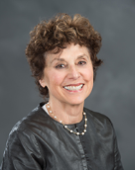
When should the use of technology by law enforcement meet a stop sign?
Lael Rubin, Civilian Oversight Commissioner
Moderator
Lael R. Rubin, a former Los Angeles County Deputy District Attorney for 34 years, tried complex cases and, as a manager for 12 years, she worked with community and law enforcement groups to develop policies which improved the criminal justice system. In addition to drafting and implementing the District Attorney’s Three Strikes policy, Lael worked with Stanford Law School and the NAACP Legal Defense Fund to change the Three Strikes law statewide. She worked collaboratively to create the voter initiative, Proposition 36, in 2012, which was enacted as law. This law required that the third offense, in most instances, be serious or violent, thereby eliminating the onerous result of sentencing someone to 25 years to life for a minor offense.
Lael is also an expert on discovery and Brady matters. She led a task force of prosecutors, defense counsel and attorneys representing law enforcement to draft and implement methods of obtaining material in the possession of law enforcement. This material, complying with state and federal law, would then be provided to defense counsel in criminal cases in order for a defendant to have a fair trial. She developed policy and training on a number of issues, including forensic sciences and DNA. From 2005 until 2009, Lael supervised the Appellate Division which included oversight of habeas corpus litigation and claims of wrongful conviction. She also argued cases in the Appellate and California Supreme Courts. Lael is a skilled consensus builder and continues to work to improve the criminal justice system.
Following her retirement from the District Attorney’s Office in 2013, Lael volunteered with Public Counsel to assist veterans with criminal justice issues and served as a resource on immigration and domestic violence issues. Lael is currently vice chair of the Santa Monica Airport Commission. The Airport Commission acts in an advisory capacity to the City Council on matters relating to the Airport and aviation matters generally as they affect the City. The Commission also considers and recommends rules and regulations for the management and operation of the Airport. Lael received her B.A. degree with honors from the University of Michigan and her J.D. degree from the University of West Los Angeles School of Law. She is admitted to practice in California State Courts, U.S. District Court for the Central District and the U.S. Supreme Court.
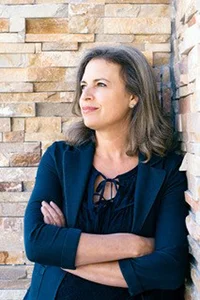
Jennifer Stisa Granick, ACLU
Panel Participant
Jennifer Granick fights for civil liberties in an age of massive surveillance and powerful digital technology. As the surveillance and cybersecurity counsel with the ACLU Speech, Privacy, and Technology Project, she litigates, speaks, and writes about privacy, security, technology, and constitutional rights. Granick is the author of the book American Spies: Modern Surveillance, Why You Should Care, and What To Do About It, published by Cambridge Press and winner of the 2016 Palmer Civil Liberties Prize.
Granick spent much of her career helping create Stanford Law School’s Center for Internet and Society. From 2001 to 2007, she was executive director of CIS and founded the Cyberlaw Clinic, where she supervised students in working on some of the most important cyberlaw cases that took place during her tenure. She has published widely on U.S. government surveillance practices and helped educate judges and congressional staffers on these issues. Granick also served as the civil liberties director at the Electronic Frontier Foundation from 2007 to 2010.
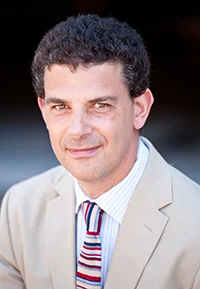
Eric J. Miller, Loyola Law School
Panel Participant
Eric J. Miller is a professor and Leo J. O’Brien Fellow at Loyola Law School in Los Angeles, where he teaches and writes in the areas of criminal procedure, jurisprudence, critical race theory, and problem-solving courts. Professor Miller is currently the Chair-Elect of the AALS Section on Criminal Justice, co-editor of the forthcoming Cambridge Handbook on Policing in America, and the co-founder of the Policing Los Angeles Forum at Loyola Law School. His scholarship focuses the intersection of criminal justice with political theory, critical race theory, sociology and criminology.
Professor Miller is an internationally recognized expert on problem solving justice and specialty courts, and a nationally recognized expert on the police and policing. He has provided testimony to the United States Congress House Judiciary Committee, the United States Sentencing Commission, the Federal Judicial Center's National Workshop for U.S. Magistrate Judges; the Eighth Circuit Chief Judges Conference, and internationally to the Scottish Government Judicial Studies Committee. Professor Miller received an LL.B. from the University of Edinburgh, and an LL.M. from Harvard Law School, where he was also a Charles Hamilton Houston Fellow.
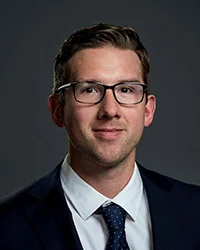
Samuel Peterson, RAND Corp.
Panel Participant
Samuel (Sam) Peterson is an Associate Policy Researcher in the Behavioral and Policy Sciences Department at RAND, and is a member of RAND's Justice Policy Program. As a criminologist, Sam has broad interests in topics within and outside of criminal justice, and his prior research experience includes gun violence prevention, sexual assault at American colleges and universities, school-based victimization among adolescents, and substance use within adolescent social networks. His applied research experience includes working with a variety of criminal justice and community stakeholders.
At RAND, Sam is currently engaged in a variety of research projects, including a police-community relations tabletop exercise, an evaluation of efforts to improve sexual assault prosecution, research to understand community-driven efforts to reduce violence, and continuing work related to RAND's Gun Policy in America initiative.
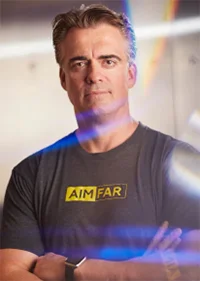
Rick Smith, CEO Axon
Panel Participant
A pioneer of technology with the vision of making the bullet obsolete, Rick Smith founded the original company, TASER, in 1993. As the TASER device became ubiquitous in law enforcement, Rick pushed the company beyond weapons technology and towards a broader purpose of matching technology to public safety needs in order to make the world a safer place. Under his leadership, the company has grown from a garage in Tucson to a NASDAQ-listed global market leader in conducted electrical weapons, body worn cameras and software.
Rick was winner of the Ernst and Young 2002 Entrepreneur of the Year. Rick graduated from Harvard with a B.S. in Neuroscience (Cum Laude) and later earned a Master in International Finance from the University of Leuven in Belgium and an MBA from the University of Chicago.
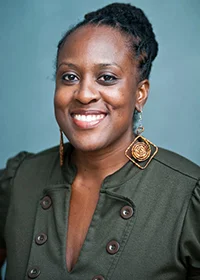
Why are they always calling the cops on me?
Priscilla Ocen, Civilian Oversight Commission Vice Chair
Moderator
Priscilla Ocen elected as vice chair. She was appointed to the Commission in December 2016 and has served on Ad Hoc Committees for Bail Reform, Cannabis and the Unmanned Aircraft System Program. She is a Professor of Law at Loyola Law School and teaches criminal law, family law and a seminar on race, gender and the law. Her work examines the relationship between race, gender and systems of punishment, in particular drawing attention to the ways criminalization and incarceration are used to police the reproductive choices of poor women of color.
Ocen is the co-author of the influential policy report, Black Girls Matter: Pushed Out, Overpoliced and Underprotected. Applying her work to broader advocacy efforts, she has served as a trainer for federal public defenders, assisted with the development of new programs in domestic violence centers, and strategized with community groups regarding efforts to monitor conditions of confinement in the L.A. County women’s jail.
Prior to joining the faculty at Loyola Law School, Ocen was a Critical Race Studies fellow at UCLA School of Law; a law clerk to the Honorable Eric L. Clay of the U.S Court of Appeals for the Sixth Circuit; and a Thurgood Marshall Fellow at the Lawyers’ Committee for Civil Rights of the San Francisco Bay Area. She is also active in the community as she serves as a member of the board of directors for the Equal Justice Society, an organization dedicated to transforming the nation’s consciousness on race through law, social science and the arts.
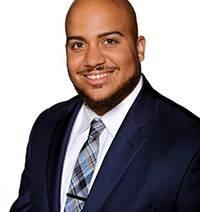
Isaac Bryan, UCLA/Million Dollar Hoods
Panel Participant
Isaac Bryan is the Director of Public Policy for the Million Dollar Hoods Project, and serves as the Public Policy Advisor to the Ralph J. Bunche Center for African American Studies at UCLA.
Working for Los Angeles Mayor Eric Garcetti, Bryan also co-authored the first City of Los Angeles comprehensive report on the reentry needs of community members. He is also known for his 2018 TEDxUCLA talk which focused largely on the injustices found in the criminal justice system.
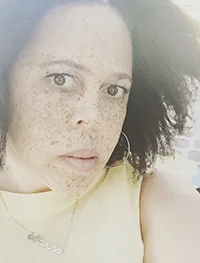
Marsha Myers, City of Los Angeles 911 Operator
Panel Participant
Marsha Myers is a Police Service Representative III Training Officer and 24-year veteran with the Los Angeles Police Department currently assigned to Communications Division Training Unit. Marsha is responsible for the development of new courses to meet training needs, and collaborates with other city entities to write and implement policy and procedure. Collateral duties include conducting Roll Call trainings, teaching Train the Trainer courses to Communications Training Officers and updating the Communications Division Manual.
Marsha has been involved with training for over 19 years. She became a classroom instructor in 2006 and conducts numerous training courses to in service and new personnel including Tactical Dispatch, Customer Service for Dispatchers and the Basic Peace Officer Standards and Training (POST) 120 hour course for new dispatchers. Marsha has worked various command posts as a Tactical Dispatcher for police perimeters, barricaded suspects and hostage situations.
Marsha earned a Bachelor of Arts Degree in Music from University of California, Los Angeles, is the director of an Urban Youth Ministry Program in South Los Angeles, and is the Co-owner of Alpha & Omega Tactical Communications, a public safety and tactical dispatch training and consultation business.
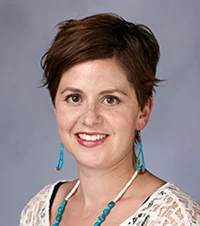
Addie Rolnick, Associate Professor of Law at UNLV
Panel Participant
Addie C. Rolnick is a Professor of Law at the University of Nevada, Las Vegas, William S. Boyd School of Law, where she teaches Criminal Law, Civil Rights, Critical Race Theory, and Federal Indian Law. Prior to joining the UNLV faculty, she was the inaugural Critical Race Studies Fellow at UCLA School of Law. Her scholarship focuses on equal protection challenges to indigenous rights; tribal juvenile and criminal justice systems; and race and criminal justice. Her article "Defending White Space," which links self-defense law to residential segregation, is forthcoming in the Cardozo Law Review.

Media Panel Discussion: Does my Camera report the truth, the whole truth, and nothing but the truth?
Al Naipo, Chief Administrative Officer at Los Angeles Memorial Coliseum Commission and former broadcast journalist
Moderator
Al Naipo is the Chief Administrative Officer for the Los Angeles Memorial Coliseum Commission, appointed in 2017 to oversee operations at the Coliseum on behalf of the City and County of Los Angeles and the State of California. Prior to that, Al served as Senior Deputy for Communications in the office of Los Angeles County Supervisor Mark Ridley-Thomas.
Before joining the County of Los Angeles, Al Naipo worked for nearly 20 years as a local television news reporter, anchor and bureau chief at KTTV FOX 11 News. Al covered some of the biggest stories in Southern California and nationwide, including the OJ Simpson Case, 1993 Southland Fires, 1994 Northridge Earthquake, JFK, Jr. Plane Crash, Hurricanes Rita and Floyd, and the Unabomber Case. Al received several Emmy Award nominations, particularly for live reporting. He also accepted a Golden Mike Award for Best Newscast in which he co-anchored.
During that 20-year span, Al was also a member of the Los Angeles Chapter of the National Association of Black Journalists, serving two terms as its president. Al’s three decade career in television news included reporting stints in Miami, St. Louis, Washington, D.C. and Peoria, IL. Al attended the University of Southern California earning undergraduate degrees in broadcast journalism and political science. He also received a graduate degree in journalism from Northwestern University.
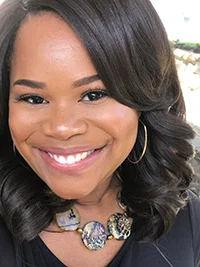
Allissa Richardson, USC Assistant Professor of Journalism
Panel Participant
Dr. Allissa V. Richardson is Assistant Professor of Journalism at the University of Southern California's Annenberg School for Communication and Journalism. Dr. Richardson studies how communities create their own news networks using mobile devices and social media. She is the author of the forthcoming book, Bearing Witness While Black: African Americans, Smartphones, and the New Protest #Journalism. Dr. Richardson's book chronicles the lives of 15 activists who used only smartphones and Twitter to report on anti-police brutality movements around the country.
Dr. Richardson also trains youth to use mobile devices to report news. She calls her students mobile journalists, or MOJOs. Dr. Richardson has led MOJO workshops in more than 50 cities across Africa, Europe and the United States. She was named Educator of the Year by the National Association of Black Journalists in 2012. Additionally, Apple named Dr. Richardson a Global Distinguished Educator for her innovative use of the company's products.
Dr. Richardson holds a Ph.D. in Journalism Studies from the University of Maryland College Park, a Master's Degree in Magazine Publishing from Northwestern University's Medill School, and a Bachelor of Science in Biology from Xavier University of Louisiana. She is also a Nieman Foundation Journalism Fellow at Harvard University, where she continues to study how mobile devices impact news.
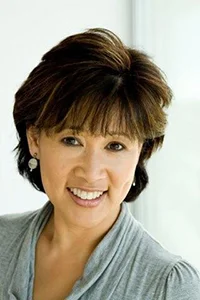
Carol Lin, Director of Strategic Communications for Los Angeles County Sheriff’s Department and former broadcast journalist
Panel Participant
Carol Lin is the Director of Strategic Communications for the Los Angeles County Sheriff’s Department. She reports to Sheriff Jim McDonnell. As the Sheriff’s chief communications strategist, Carol Lin is responsible for guiding the image and understanding of the priorities of the nation’s largest Sheriff’s Department, especially during times of controversy.
Carol Lin brings more than 20 years of experience as a broadcast journalist including 12 years in network television news as the National Correspondent for ABC News’ Good Morning America and as the Los Angeles-based correspondent for ABC World News Tonight with Peter Jennings. Prior to working at the national level, she was an anchor and investigative reporter for the Los Angeles television station, Fox 11, where she and her team produced several award winning stories about the crackdown on human smuggling, counterfeit currencies and fake government I.D’s. These stories were made possible by her positive relationships with the Los Angeles Police Department (LAPD), the Los Angeles County Sheriff’s Department (LASD) and the U.S. Secret Service.
Carol Lin is the recipient of both the “Alfred E. Dupont Award of Excellence” and the “Peabody Award” for her work at CNN covering Hurricane Katrina, and the war in Afghanistan. Her personal experience as a cancer caregiver led her to Silicon Valley where she served as an Entrepreneur in Residence at the former Stanford Research Institute where she led a team in developing a social network for cancer patients and their families. She also spent more than eight (8) years teaching at USC’s Annenberg School of Journalism in Los Angeles.
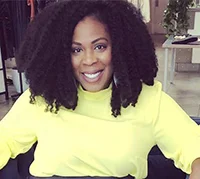
Jasmyne Cannick, Social Critic and Political Commentator
Panel Participant
Nationally Ms. Cannick is known for her ability to speak truth to power as a journalist and television and radio commentator focusing on political, race and social issues causing her to be selected as one of ESSENCE Magazine’s 25 Women Shaping the World, one of the Most Influential African-Americans in Los Angeles Under 40and one of Los Angeles’ Most Fascinating Angelenos by the L.A. Weekly. A forward thinker with the ability to tackle hard to address issues from an unapologetically Black point of view, Jasmyne continues to successfully bring a logical mindset, including innovative theories to the art and practice of storytelling in the 21st century. Ms. Cannick is known for her efforts to shape public opinion and encourage civic engagement for positive social change while advocating for underrepresented and marginalized communities.
No stranger to radio, she is a former co-anchor and reporter for the “Evening News” on Los Angeles Pacifica radio station 90.7FM KPFK. Prior to its recent cancellation, Ms. Cannick was a regular on TVOne’s NewsOne Now with Roland Martin. Jasmyne has been a regular commentator on NPR including the now-defunct “News and Notes” shows. She’s worked as a segment producer on KJLH-FM’s “Front Page” show and continues to be a regular contributor to Southern California’s premiere news and current affairs show focused on the African-American community. She is also currently a regular contributor to KABC 790 AM’s “Midday Live with Dr. Drew.”

Laura Diaz, Fox11 Anchor/Reporter
Panel Participant
In a rapidly changing media world, one reliable constant for Southern California viewers is the presence of Laura Diaz anchoring the news. Laura is thrilled to be reunited with so many dear friends, colleagues and former competitors after she joined FOX owned KTTV and KCOP in Los Angeles in May 2012. For more than two decades, Diaz has anchored, reported and produced for several flagship Los Angeles stations. She is a 14-time Emmy Award Winner.
After brief reporting assignments in San Luis Obispo and Fresno fresh out of college, Laura returned home to Southern California to KABC. Her path took her from the Orange County Bureau where she began as a reporter to the highest-ranking position for an anchor at that station's headquarters in Hollywood. After an amazing winning streak at powerhouse KABC, Diaz jumped to KCBS as lead anchor with a special emphasis on specials and mini documentaries. At KCBS, Laura received the L.A. Press Club's highest honor, the "Joseph M. Quinn Award" for journalistic excellence and distinction. She and her team also took home the prestigious national Imagen Award for Best Local Information Program. Her special series on undercover ATF Agent Billy Queen, who penetrated a notorious motorcycle gang, earned her back to back honors, with a Golden Mike and a local Emmy. In 2006, KCBS finished in first place for the first time in more than thirty years with Diaz co- anchoring the centerpiece 11 PM newscast.
Recently, Laura has developed a keen interest in reporting on counter terrorism efforts in Southern California. Her reports have ranged from aspects such as local law enforcement’s counter terrorism efforts abroad to the training of explosive detecting dogs here at home. Laura currently sits on the advisory board of "The Joyful Child Foundation", started by children's advocate Erin Runnion. She is also a member of the Pasadena Playhouse Diversity Committee. Diaz was born in Santa Paula and raised in Santa Clarita. She graduated from William S. Hart High School and earned a Bachelor of Arts degree in English from Cal Poly San Luis Obispo. In her spare time, Laura enjoys running, weight training, rooting for the local sports teams the Dodgers, Lakers, and Angels!
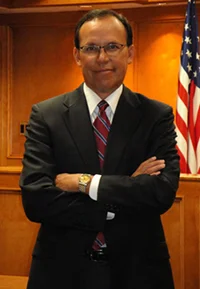
Manny Medrano, Journalist
Panel Participant
Manny Medrano is an Emmy award-winning broadcast journalist and experienced trial attorney. He represents and advises clients in a broad range of civil litigation and criminal investigations and trials. Before founding Medrano & Carlton, Mr. Medrano was Of Counsel with the international firm Sonnenschein Nath & Rosenthal, and an associate with Cox Castle & Nicholson, where he successfully conducted complex business litigation in state and federal courts, including government and commercial contracts, qui tam/whistleblower suits, employment law, construction defect and premises liability. He also focused on white collar defense and investigations, and is experienced in winning appeals in California state and federal appellate courts.
Mr. Medrano also served as a federal prosecutor for ten years in the Los Angeles U.S. Attorney’s Office, where he was a trial attorney and supervisor of several sections. He served as Chief of the Asset Forfeiture Section, and Deputy Chief of the Criminal Complaints Unit. He tried 60 cases to verdict, never losing a jury trial. As a lead prosecutor he tried numerous precedent-setting cases, including, with partner Mr. Carlton, the 1985 kidnapping, torture and murder of DEA Special Agent Enrique Camarena in Mexico, for which he received the prestigious Department of Justice Director's Award for Superior Performance. During Mr. Medrano’s decade as a federal prosecutor, he conducted lengthy grand jury investigations, and prosecuted cases involving complex financial crime and RICO, narcotics, government fraud and violent crime. He was recognized for his outstanding government service with numerous awards and commendations from federal investigative agencies, including the DEA, FBI, ATF, and IRS, among others.
A highly gifted and sought-after speaker, Mr. Medrano served as a Lecturer and Group Leader for the U.S. Attorney General’s Trial Advocacy Program. He is an Adjunct Professor of Law at the University of Southern California Law School, Loyola Law School, Pepperdine University School of Law and Southwestern University School of Law, where he has taught Evidence, Trial Advocacy, Ethics and Negotiation. Mr. Medrano has lectured at numerous training sessions for state and federal law enforcement officials around the country. He is a featured keynoter and panelist at bar and judicial association conferences on a wide range of legal and media topics. He has served as a Judge Pro Tem in Los Angeles County.
Mr. Medrano is a cum laude graduate of Harvard College and Harvard Law School. He has distinguished himself as an Emmy and Golden Mike award-winning reporter/anchor for KTLA News and KNBC News in Los Angeles, and is a former member of the prestigious ranks of the U.S. Supreme Court press corps, where he served as a Supreme Court/Legal Affairs correspondent for ABC News in Washington, D.C. He appears regularly as a legal commentator on network and local television and radio programs, including ABC, NBC, CNN, MSNBC, CNBC, E! Entertainment and NPR. He is admitted to practice in federal and state courts throughout California, and the Ninth Circuit Courts of Appeal. Mr. Medrano was named to Hispanic Business Magazine’s “100 Influential List 2005,� and has been profiled and quoted in numerous publications, including the Wall Street Journal, New York Times, Los Angeles Times and Los Angeles Daily Journal. Mr. Medrano is fluent in Spanish and active in numerous charities. He has received numerous awards and recognition for his work benefiting the community from members of Congress and state legislators, as well as corporations, government agencies, non-profit entities and universities.
Where do we go from here: A group discussion on next steps
Table Facilitators
- Casimiro Tolentino, Civilian Oversight Commissioner
- J.P. Harris, Civilian Oversight Commissioner
- Max Huntsman, Inspector General
- Kelly Fischer, Department of Public Health, Injury & Violence Prevention
- Andrea Welsing, Department of Public Health, Injury & Violence Prevention
- Isabelle Gunning, Human Relations Commissioner, Professor of Law at Southwestern Law School
- Guadalupe Montano, Human Relations Commissioner
- Fredrick Sykes, Human Relations Commissioner
- Miriam Brown, Department of Mental Health
- Rigoberto Reyes, Office of Immigrant Affairs
- Rebecca Bueno, ALADS
- Jay Trisler, ALADS
- Shaphan Roberts, LAPD Mediation Program
- Caroline Stauffer, LAPD Mediation Program
- Anthony Robles, Youth Justice Coalition
- James Nelson, Dignity and Power Now
- Daisy Ramirez, ACLU So Cal
- Esther Lim, ACLU So Cal
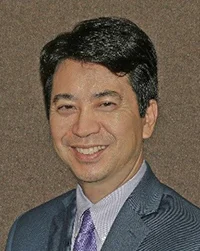
Robin S. Toma
Moderator
Robin S. Toma, is Executive Director of the Los Angeles County Commission on Human Relations Commission, appointed in 2000. He also serves as the head of the Human Relations Branch holding the position of Assistant Director of the department of Workforce Development, Aging and Community Services, County of Los Angeles. Under his leadership, the agency is working to transform prejuidice into acceptance, inequity into justice, and hostility into peace. By building community capacity and focus in key areas, racialized gang violence has been lessened. Through demonstration projects in high schools, the power of integrating human relations strategies into school campuses have brought about greater inclusion, harmony, reduced fighting and conflict, and improved academic performance. The Commission's signature annual report on hate crime in the county has shown a long term trend downward in hate crime until recent years, while the Commission has invested in hate violence prevention community partnerships and training peacemakers through the countywide dispute resolution program.."
Robin's published writings include A Primer on Managing Intergroup Conflict in a Multicultural Workplace, Day Laborers Hiring Sites: Constructive Approaches to Community Conflict (co-author with Jill Esbenshade), and he contributed a piece on racialized gang violence in the book Uncommon Common Ground: Race and America's Future.
Robin serves as First Vice President on the board of directors of the International Association of Official Human Rights Agencies (IAOHRA), and was President of and is on the Board of the California Association of Human Relations Organization (CAHRO). He's been a Senior Fellow at the UCLA Luskin School of Public Affairs since 2009, and had the privilege to be part of the Harvard University's Kennedy School of Government's Executive Session on Human Rights Commissions and Criminal Justice (2006-2008), and the Kellogg National Fellowship/Leadership Program (1994-97). He was appointed by the U.S. Commission on Civil Rights to serve on the California State Advisory Committee (2012 to present), and helped create and serves on the L.A. Unified School District's Commission on Human Relations, Diversity and Educational Equity. He served three years on the national interim leadership team of the Within Our Lifetime Network for Racial Equity and Healing.
In August 2014, Robin spoke in Geneva on the review of the U.S. Government's compliance with the treaty to eliminate racial discrimination (CERD), and was an invited adviser to the Obama Administration's delegation to the U.N. Human Rights Council in Geneva, for the U.S. first-ever presentation on its human rights record as part of the United Nations' Universal Periodic Review process in November 2010. He was also invited to serve on the official U.S. Delegation to the U.N. World Conference Against Racism in Durban, South Africa, in 2001.
Robin is the son of Americans of Japanese and Okinawan ancestry; his mother and her family spent World War II imprisoned in the U.S. internment camps solely because of their Japanese ancestry. Robin's paternal grandfather was an immigrant Okinawan sugar cane plantation worker in Maui. Robin grew up in the Echo Park/Silver Lake neighborhoods of L.A., attending LAUSD public schools. He received a B.A. with the highest honors in Sociology and honors in Economics from University of California at Santa Cruz; and a J.D. degree and M.A. degree in Urban Planning from UCLA. Robin is fluent in Spanish, having studied and worked in Barcelona for two years, and was a teacher in L.A.'s public schools.
Prior to working at the Commission, Robin was a staff attorney at the American Civil Liberties Union Foundation of Southern California for almost 7 years, and litigated a wide range of human rights and civil liberties cases in federal and state courts, including the free speech rights of anti-nuclear weapons activists at shopping malls, Filipina nurses' challenge to English Only workplace ban, UFW supporters' rights to promote the grape boycott at Vons' supermarkers, day laborers' right to not be treated as criminals for merely expressing their availability for work, international human rights of a Mexican doctor kidnapped by federal agents, and a successful challenge on behalf of Latinos for denial of voting rights. He was also lead attorney in a class action lawsuit on behalf of Japanese Latin Americans which lead to redress and an apology from the President for being forcibly brought to and imprisoned in the U.S. and used in prisoner exchange with Japan during WWII.